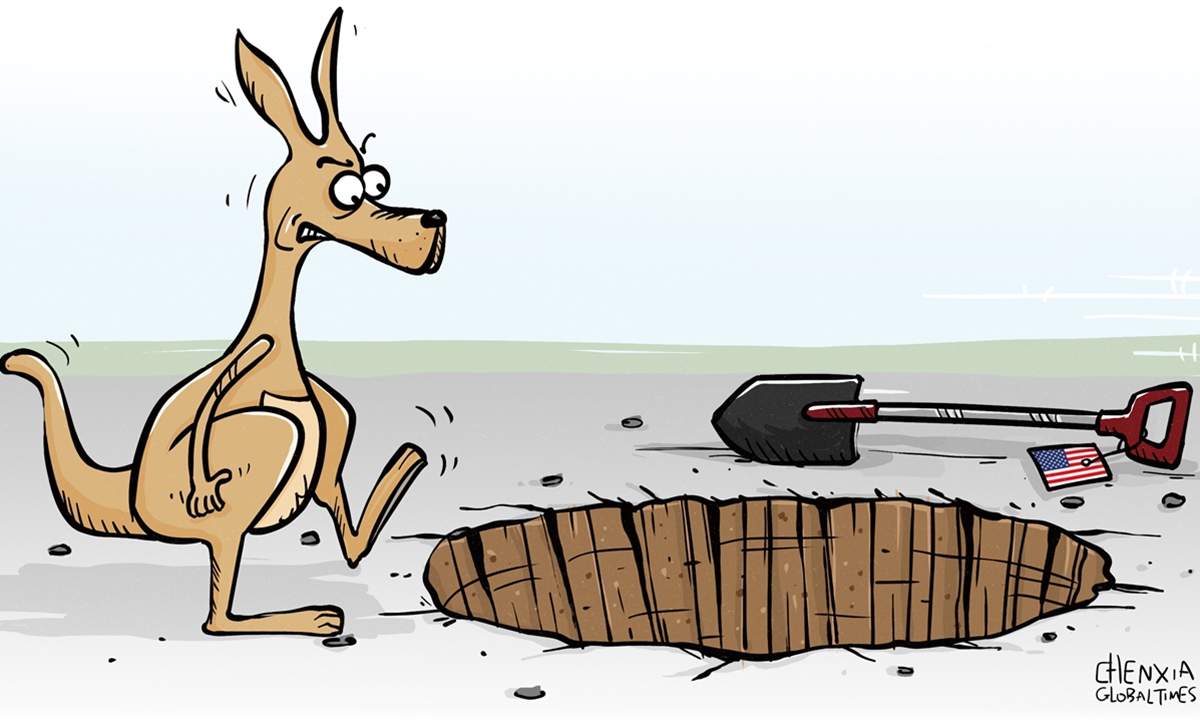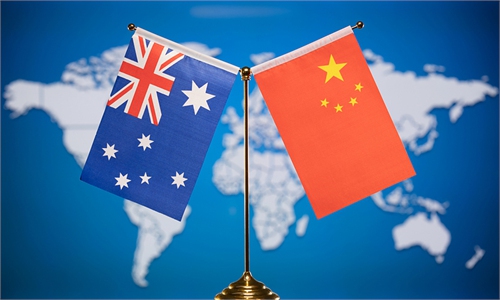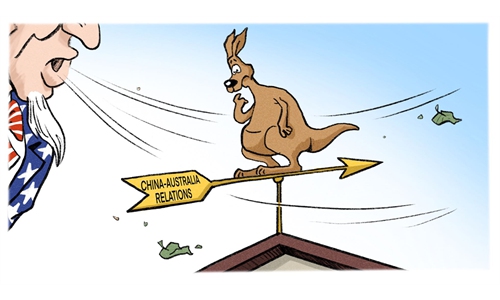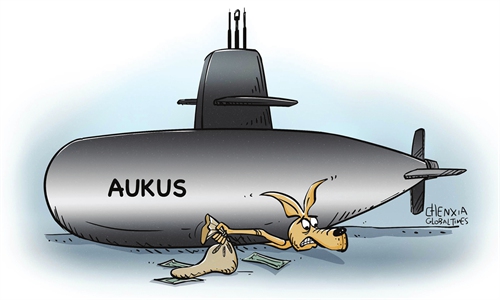
Illustration: Chen Xia/GT
Despite the thawing of China-Australia relations, Australia has accused China of "coercion." Australia unveiled its new defense strategy on Wednesday, announcing an increase of around AU$50 billion ($32 million) in defense spending over the next decade. The strategy noted China's "coercive tactics" amid the growing risk of regional conflict, such as in the Taiwan Straits and the South China Sea.
Australia's defense strategy is a serious miscalculation of the situation in the Asia-Pacific region, a misjudgment of China's strategic intentions and a wrong position. Australia has mistakenly characterized some of China's actions in safeguarding national sovereignty and territorial integrity as "coercive tactics." This completely ignores historical facts and international norms, as well as distorts and slanders China's legitimate rights and actions in the Taiwan Straits and the South China Sea.
China and Australia have no historical grudges or fundamental conflicts of interest, and China has no intention of treating Australia as an enemy, but it is always described as a "threat" by Australia. Australia has long hoped to play the role of a major power in the South Pacific, so it believes that fabricating or hyping up the "China threat" rhetoric can enhance its strategic position in this region. However, the fact is exactly the opposite. Canberra is imagining the nightmare scenario of the imaginary "war with China" under the coax of Washington. It will end up sacrificing its own interests to support the hegemony of the US.
"Australia's inexplicable insecurity and anxiety when facing China are the result of being misled or cajoled by the US. It is imaging a fictitious threat from China. Therefore, some of China's actions in safeguarding national sovereignty and territorial integrity in the South China Sea are wrongly described as coercion," Chen Hong, director of the Australian Studies Center of East China Normal University, told the Global Times.
Amid this anxiety and morbid mentality, the Australian government announced in February that it would invest additional AU$11.1 billion to build "a larger, more lethal" fleet than the largest navy since World War II. Australia's military strategy deviates from a defensive nature, to become aggressive, changing from being the "anchor" of US strategy to an offensive "spear."
Australia, surrounded by seas on all sides, is far away from other hot spots. No country can pose a direct military threat or challenge to its territory. Australian Defense Minister Richard Marles also mentioned on Wednesday that invasion of Australia is "an unlikely prospect" in any scenario. China has never shown off its force or engaged in any coercive behavior near Australia. On the contrary, Australia joined joint naval exercises in the South China Sea in early April with the US, Japan and the Philippines, stirring up the regional situation and acting aggressively on China's doorstep.
Ning Tuanhui, an assistant research fellow at the China Institute of International Studies, believes Australia has been paranoid in terms of military and security in recent years, subjectively exaggerating security threats and regarding China as a risk source of its safety. This perspective is indeed far-fetched. China and Australia don't have territorial disputes nor fundamental conflicts of interest, making it unlikely for the two countries to have military collisions.
In fact, it's Australia's defense strategy of aligning itself with the US against China that may actually increase its own risks in the long run. This approach is self-inflicted, and it will not bring any benefits to Australia, but rather pose extreme danger.
Chinese Foreign Minister Wang Yi's visit to Australia in March demonstrated China's positive attitude toward advancing bilateral relations. This kind of mutual respect and win-win exchanges, not limited to the economic and trade field, should be the original pattern of the relationship between the two countries.
Australia has unwarranted anxieties toward China in its relations with the country. Fabricating the "China threat" has become a form of political correctness for some Australian politicians. They only seem to value immediate interests, emphasizing the importance of China-Australia relations when they need economic support from China, and showing loyalty to Washington when necessary. If Australia believes it is maintaining a balance between China and the US, it has created the "largest swing" in the world.
Much of Australia's security anxiety regarding China is unnecessary. It may be difficult for Canberra to completely change this mindset quickly, but the Australian government must be careful not to make misjudgments when it comes to the country's destiny.



